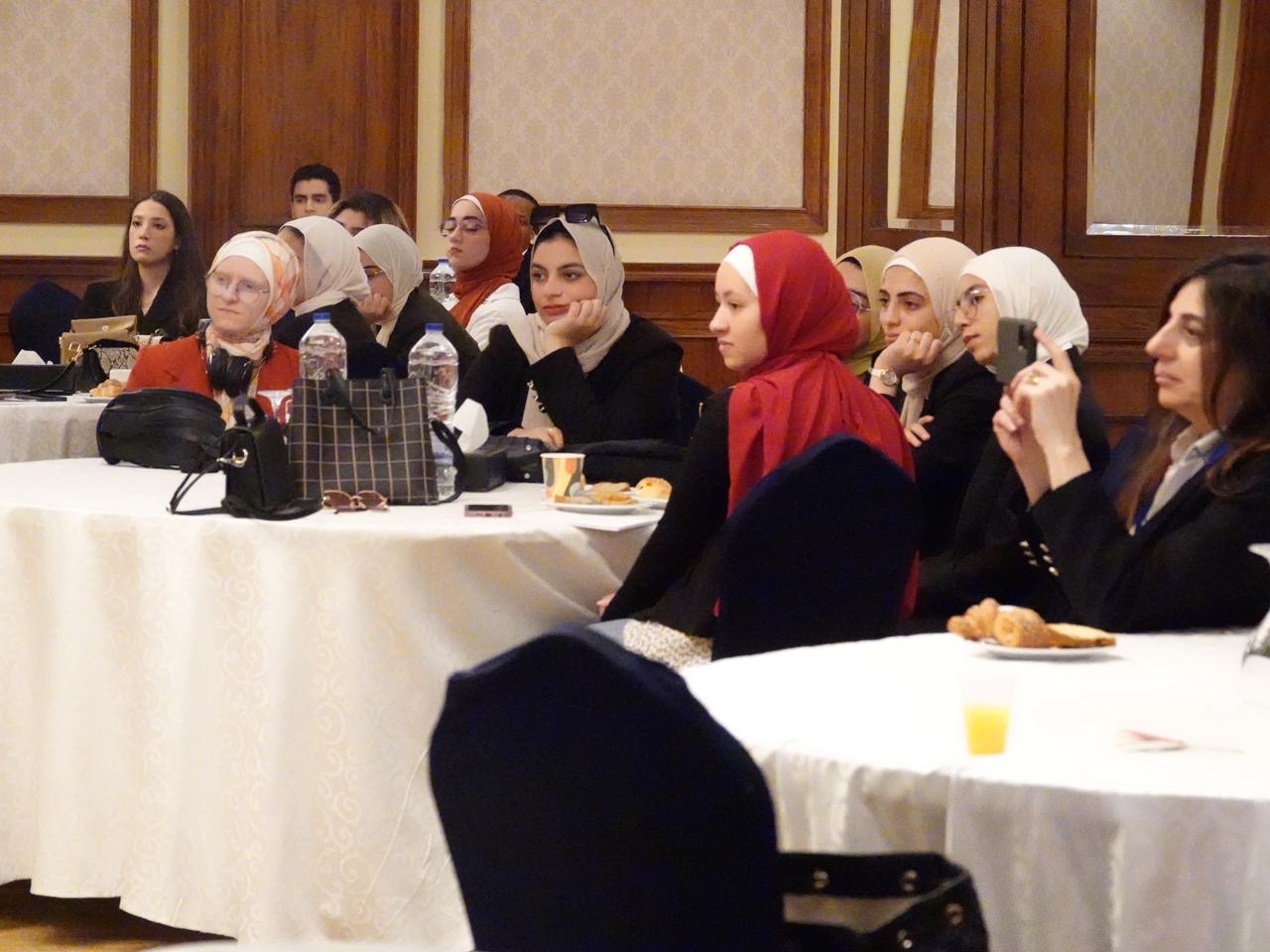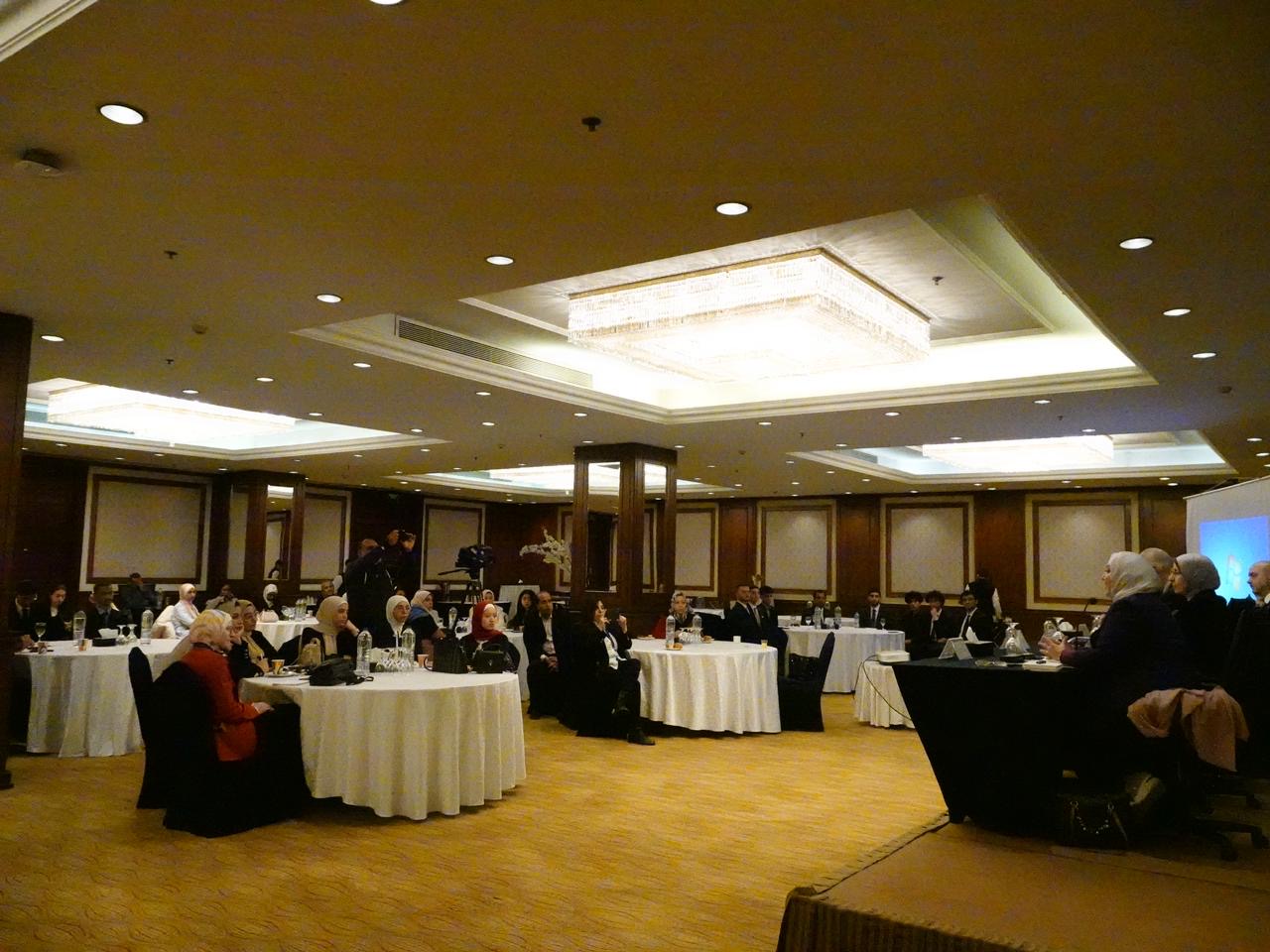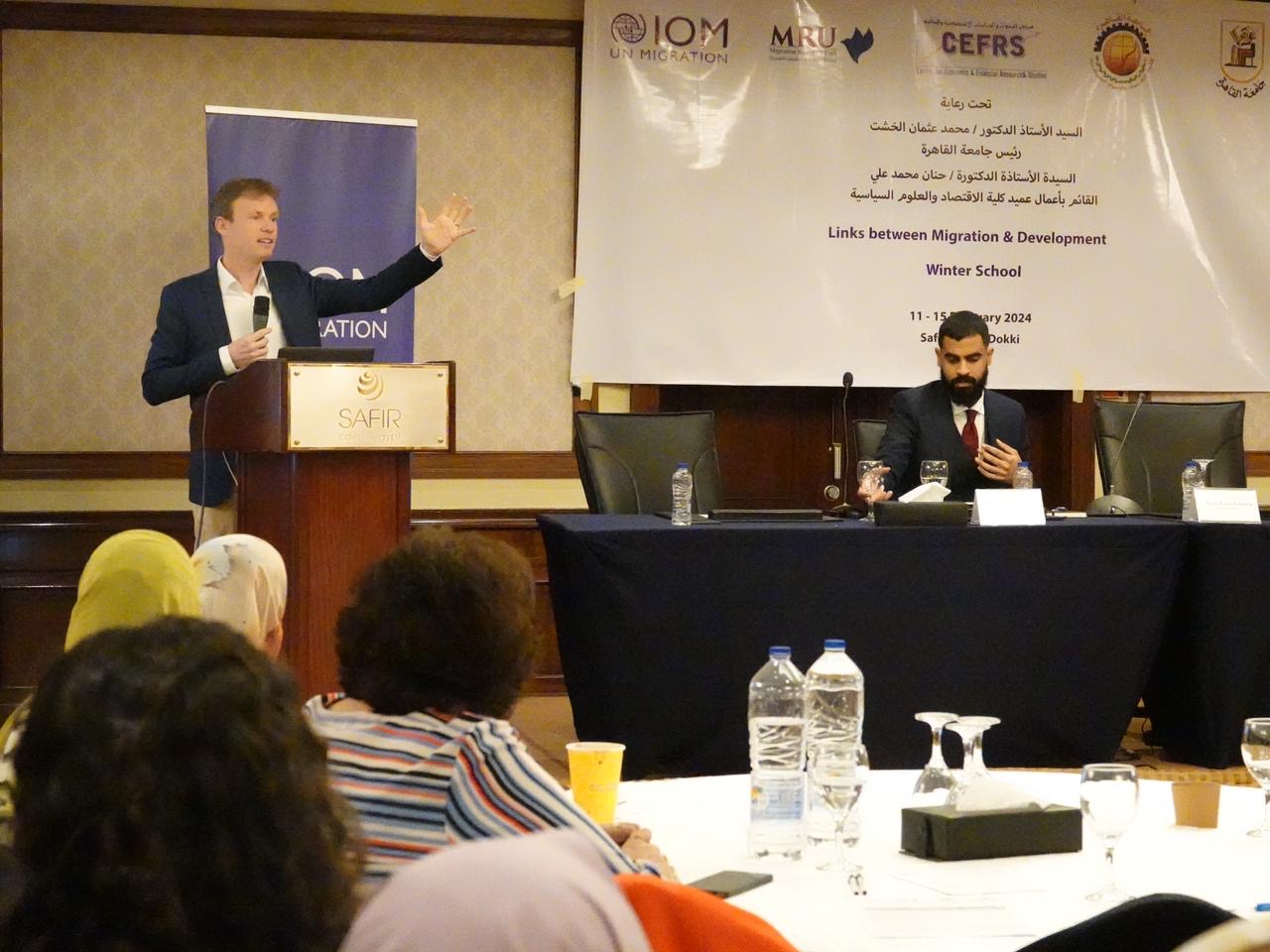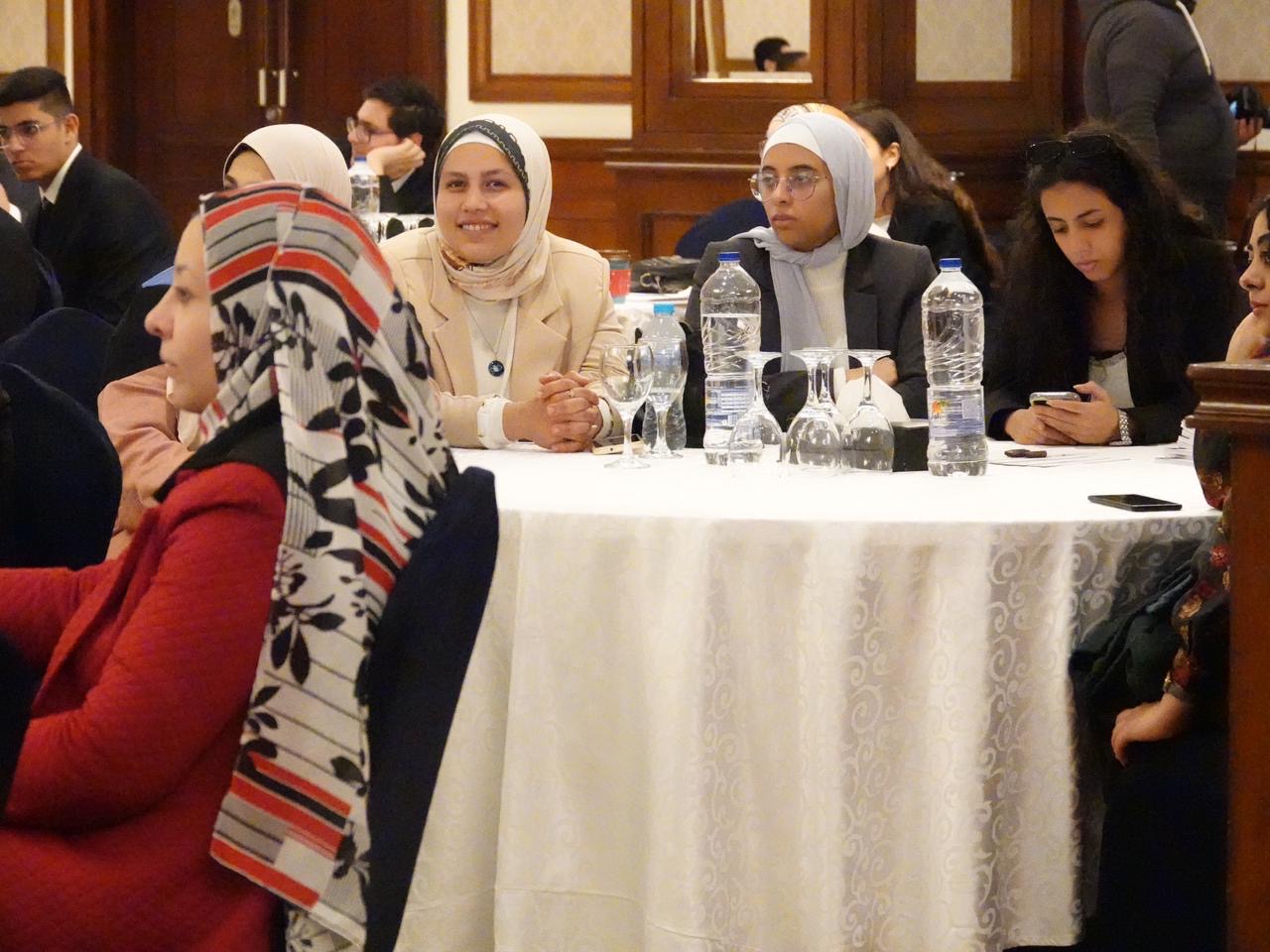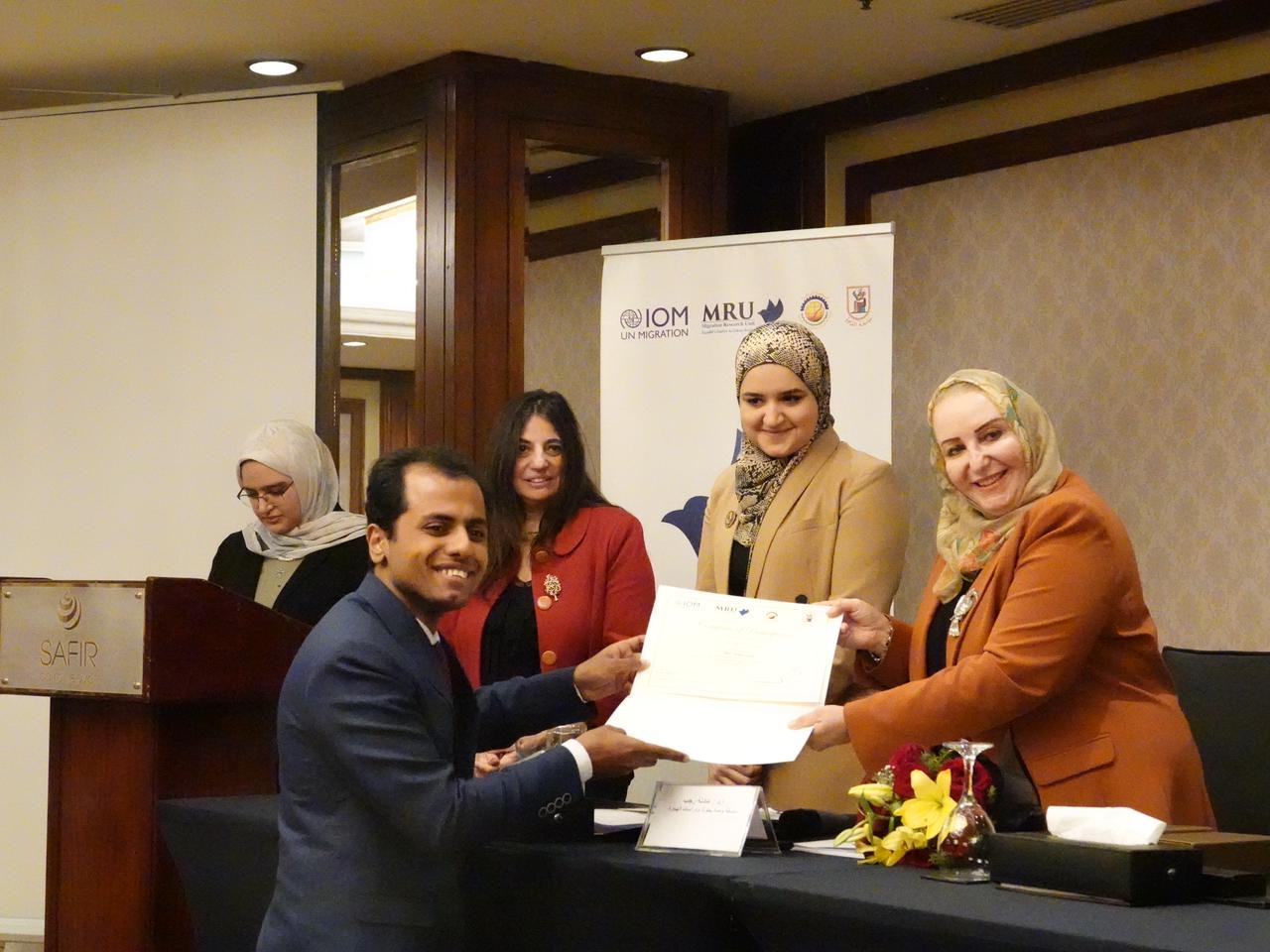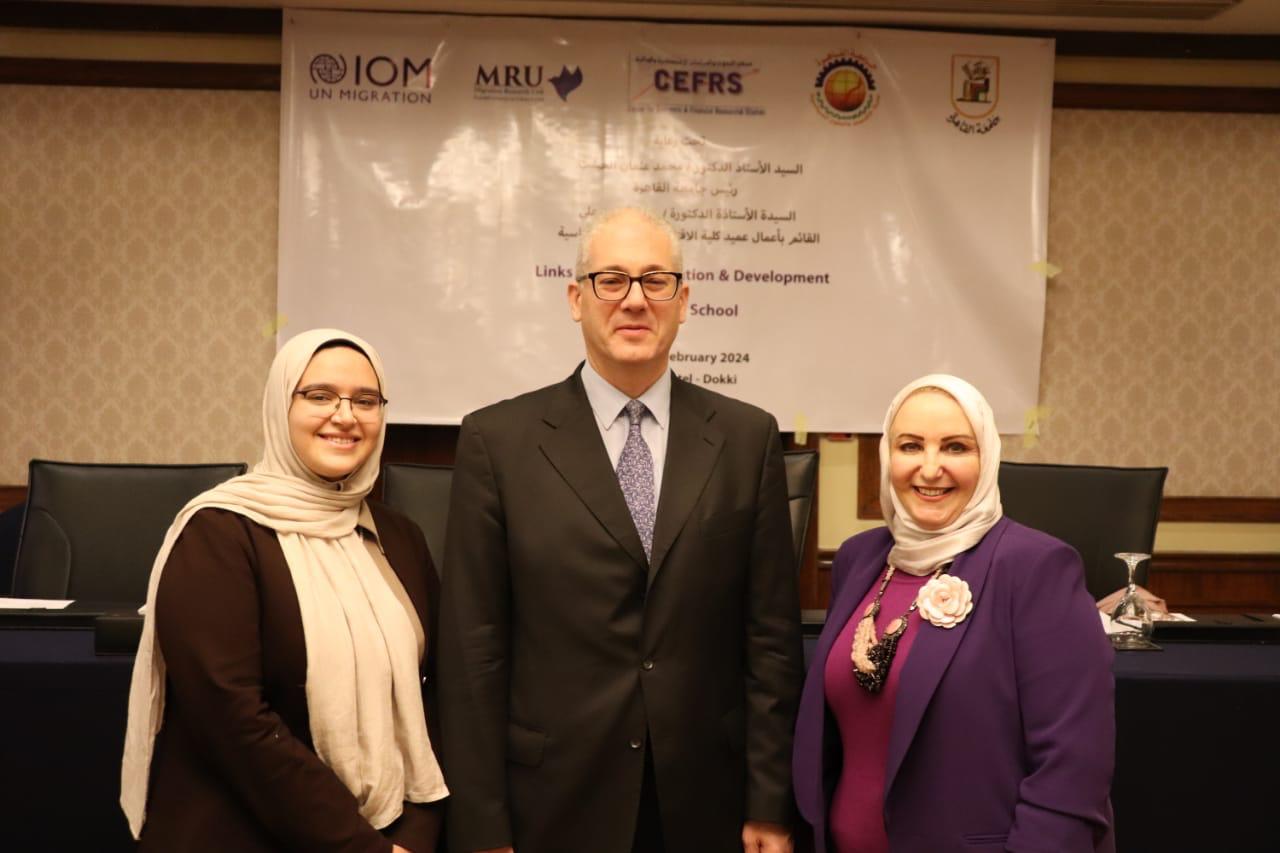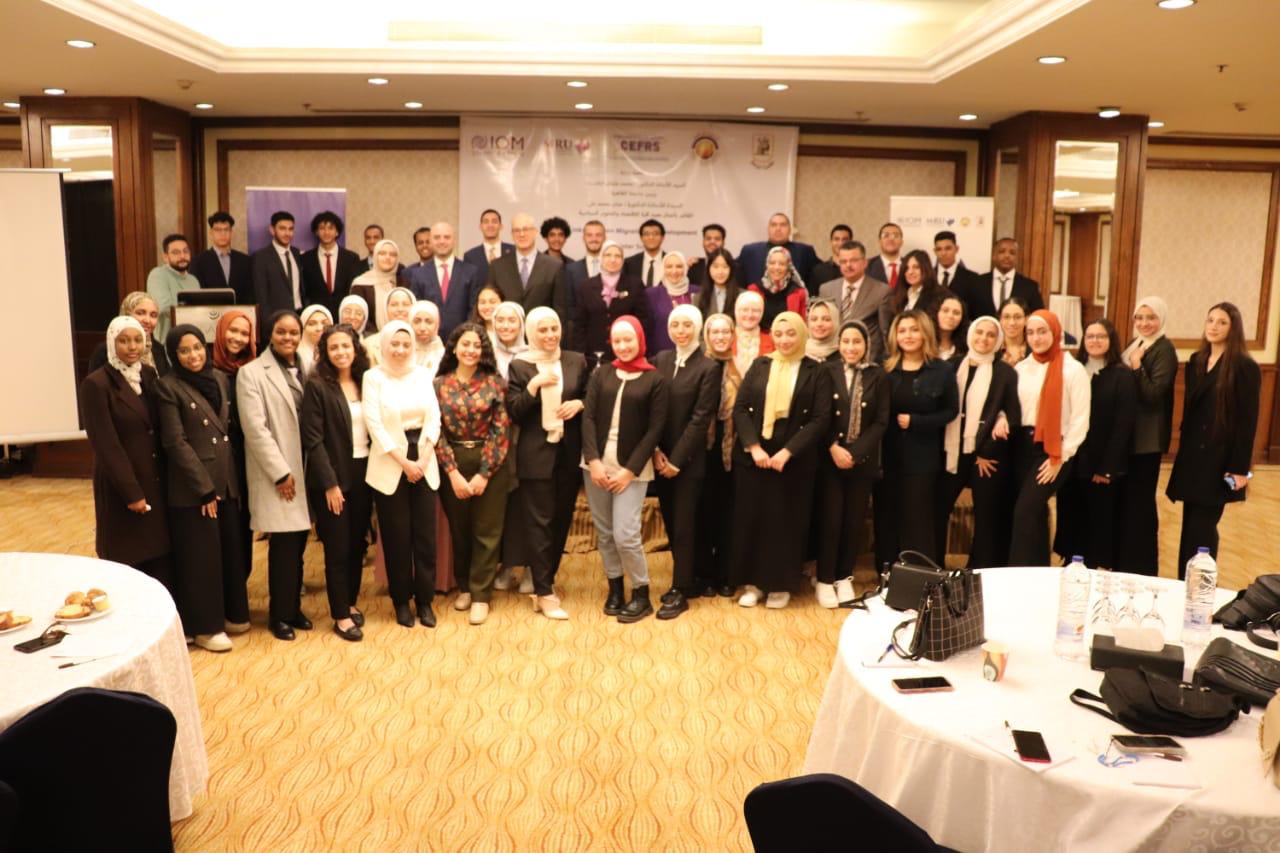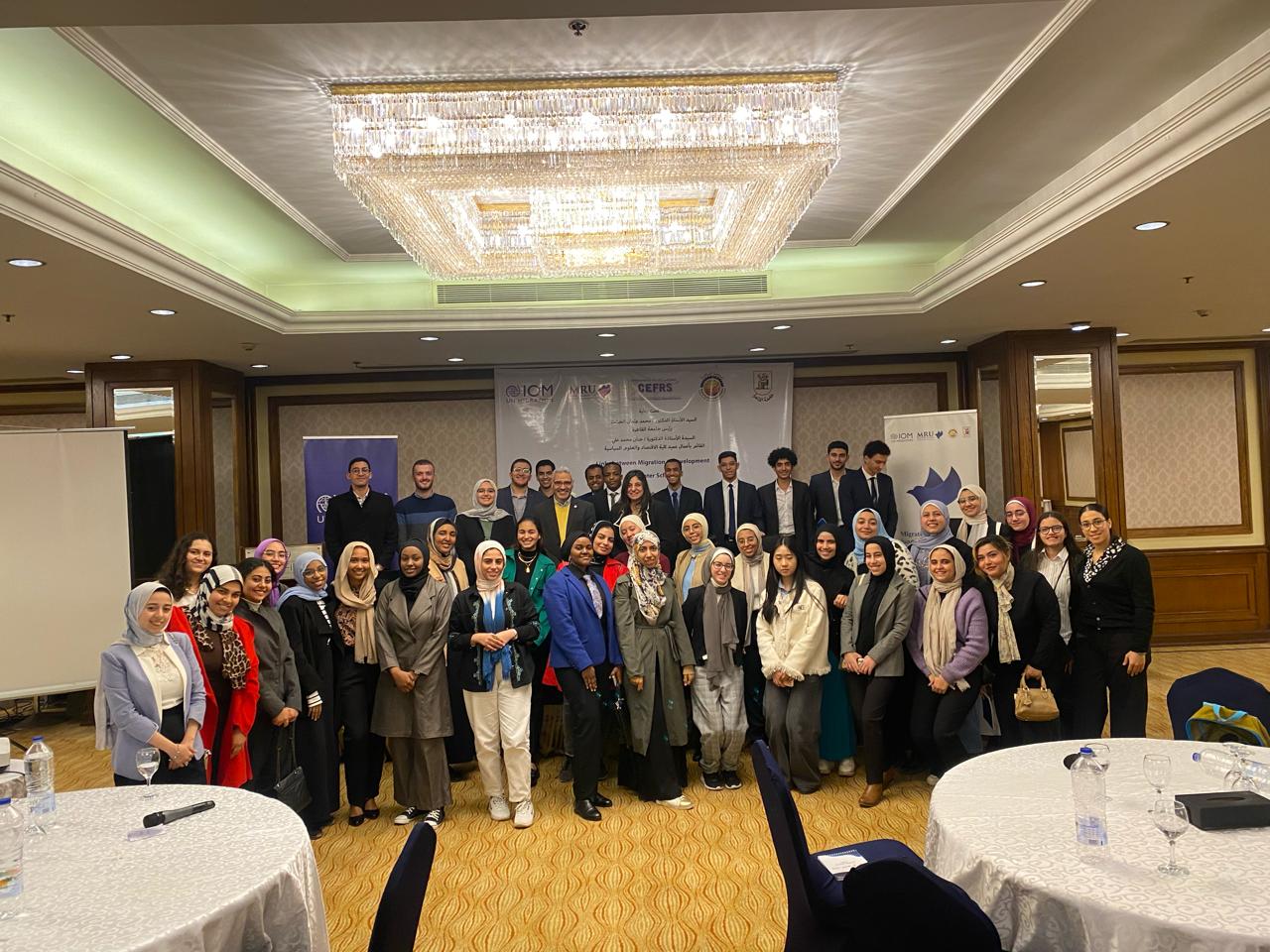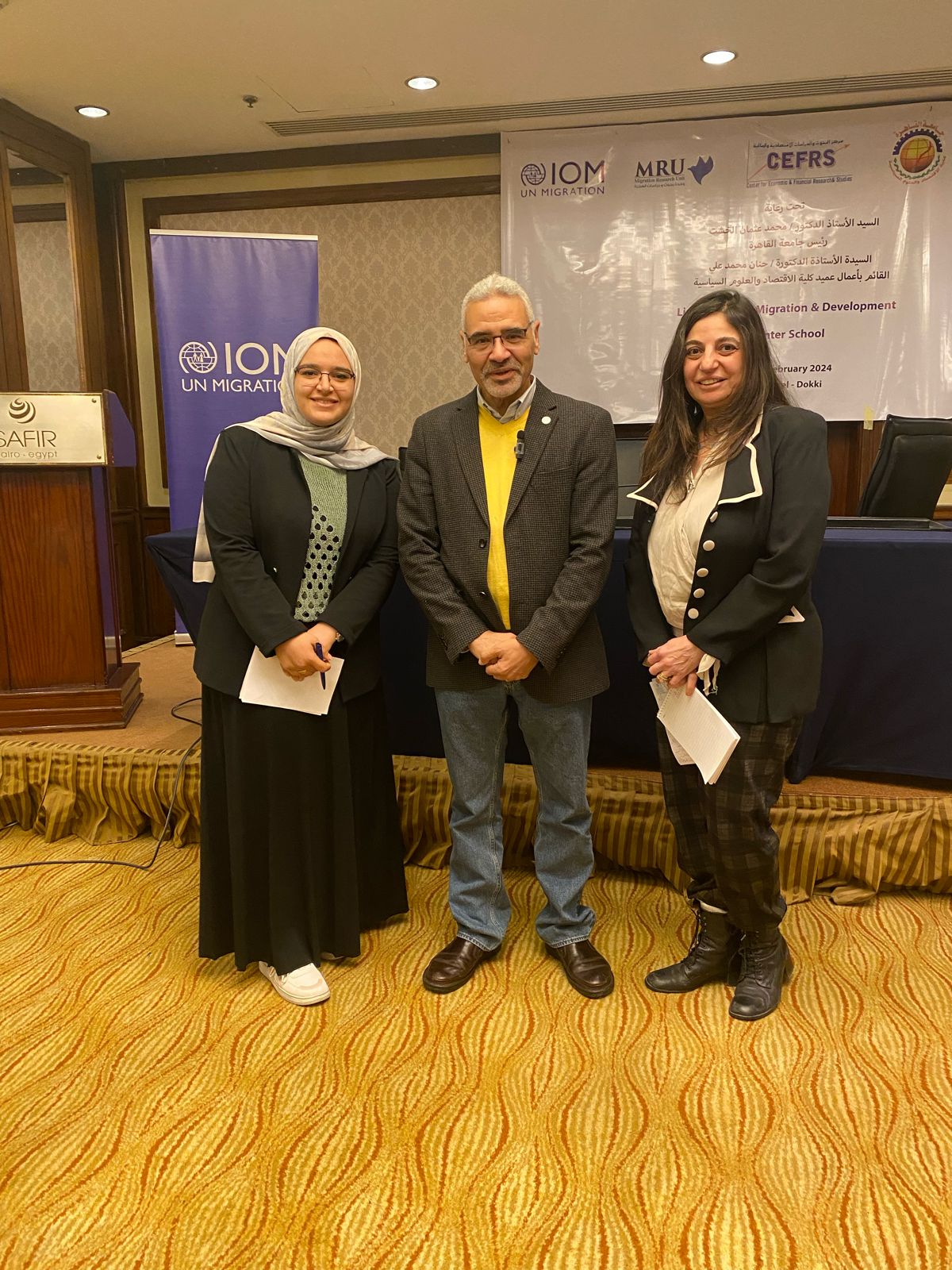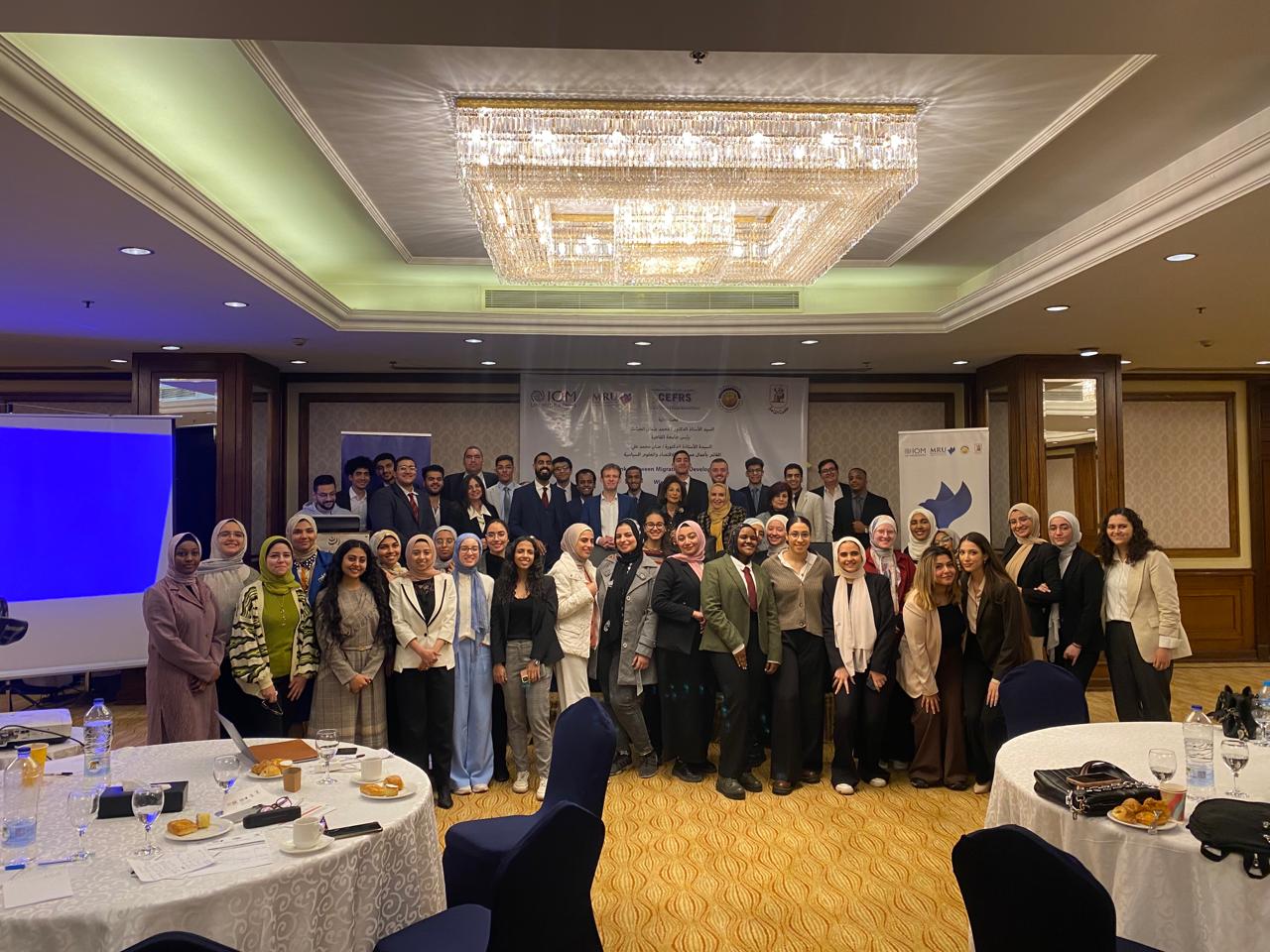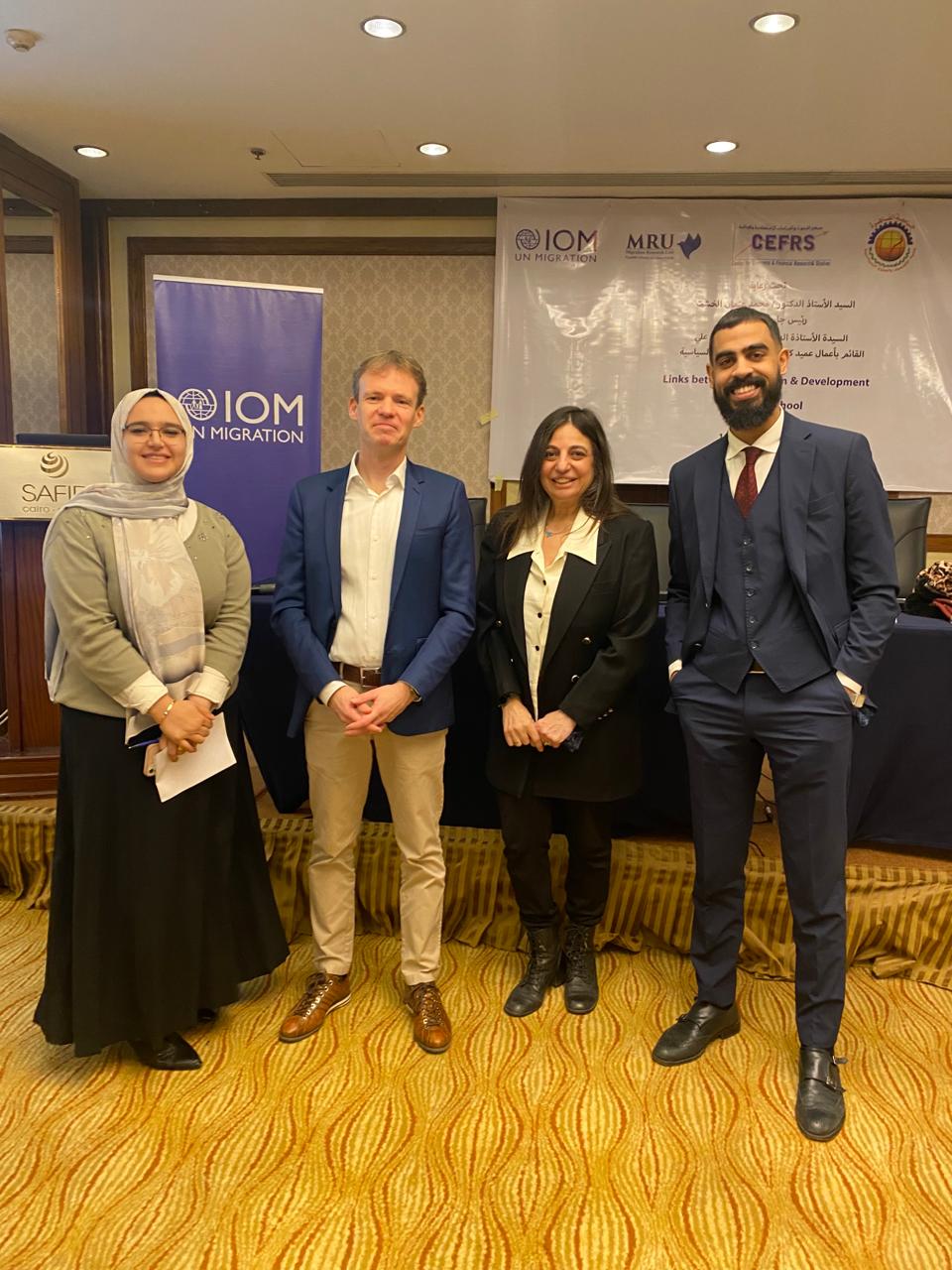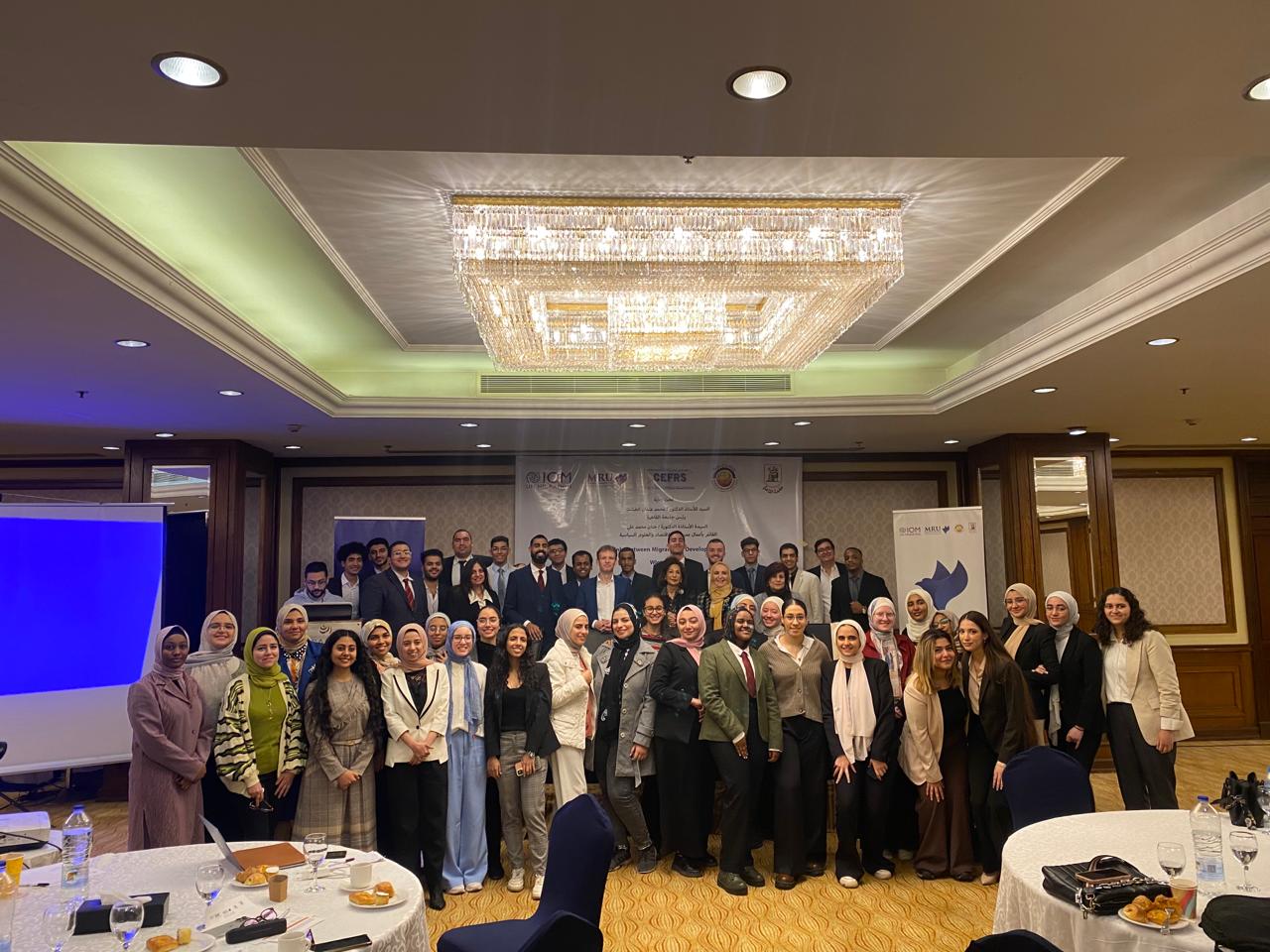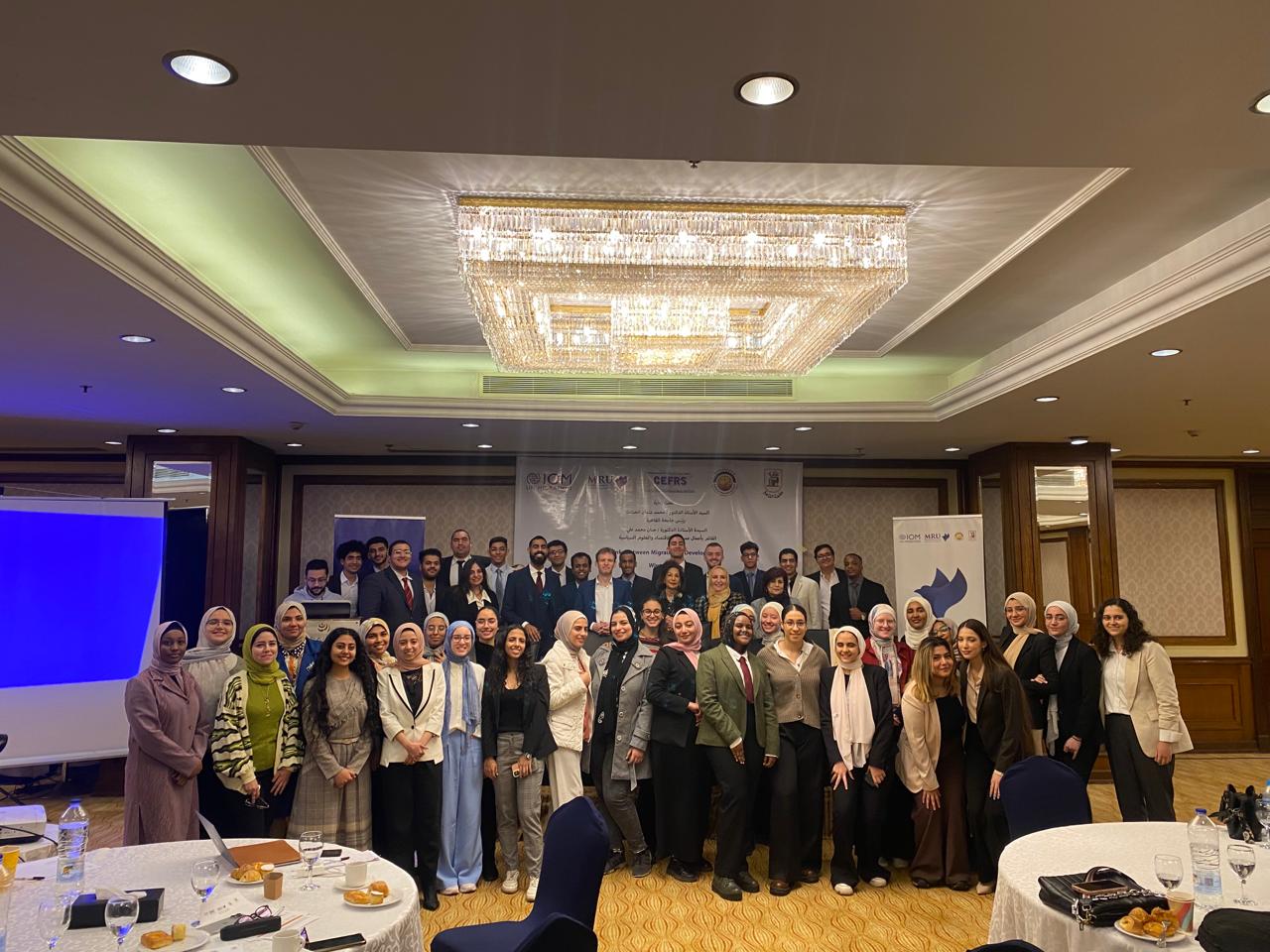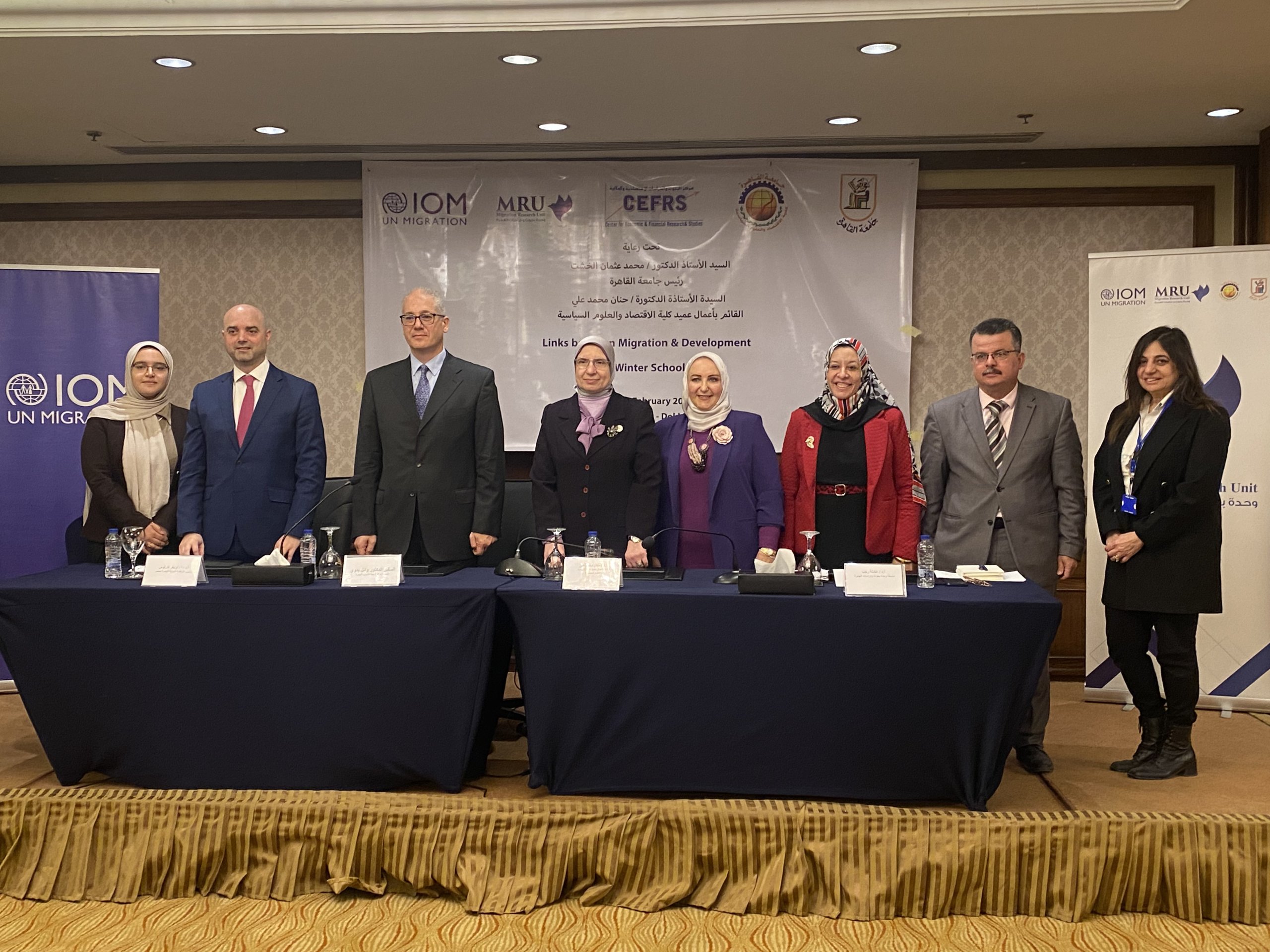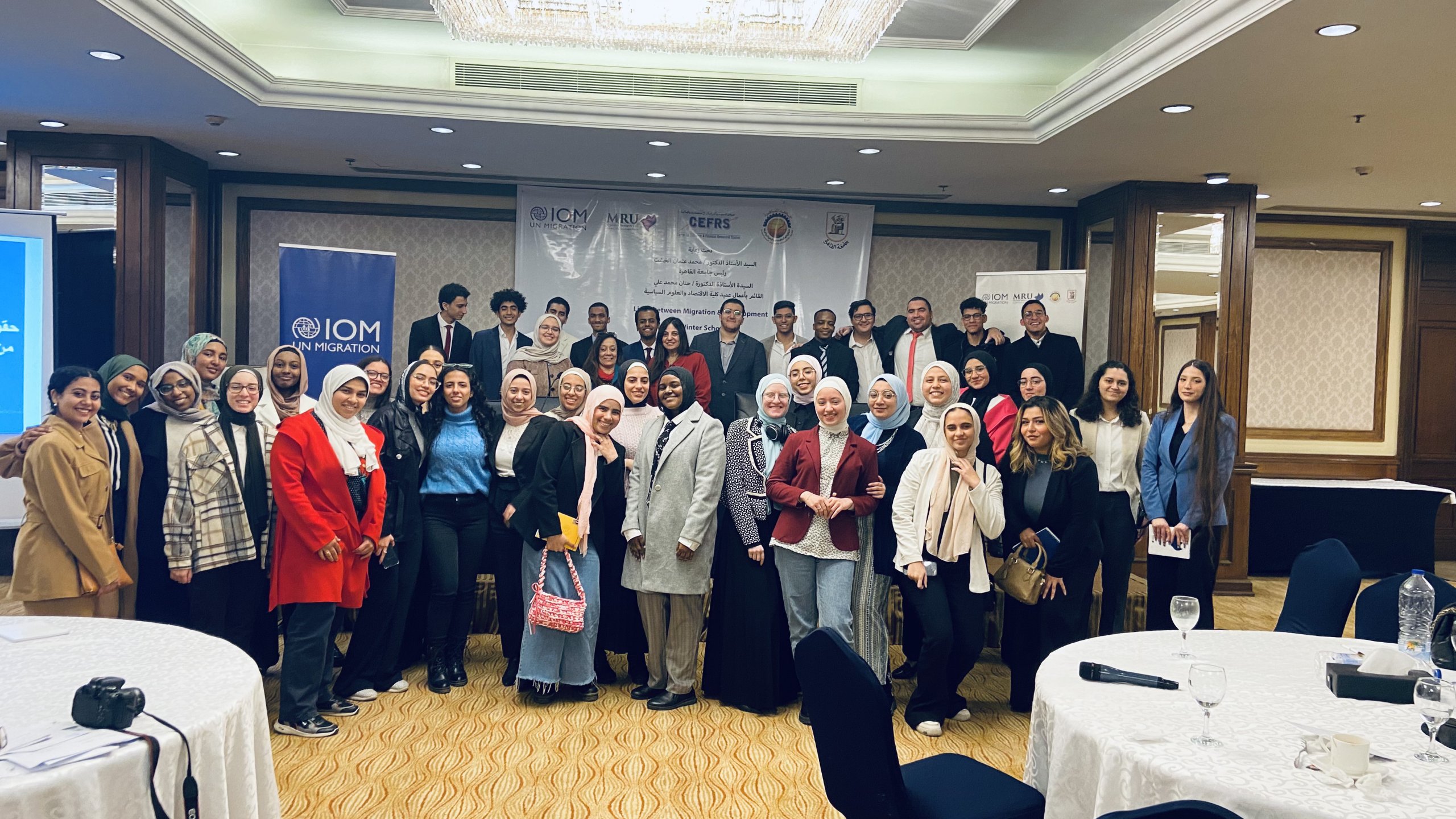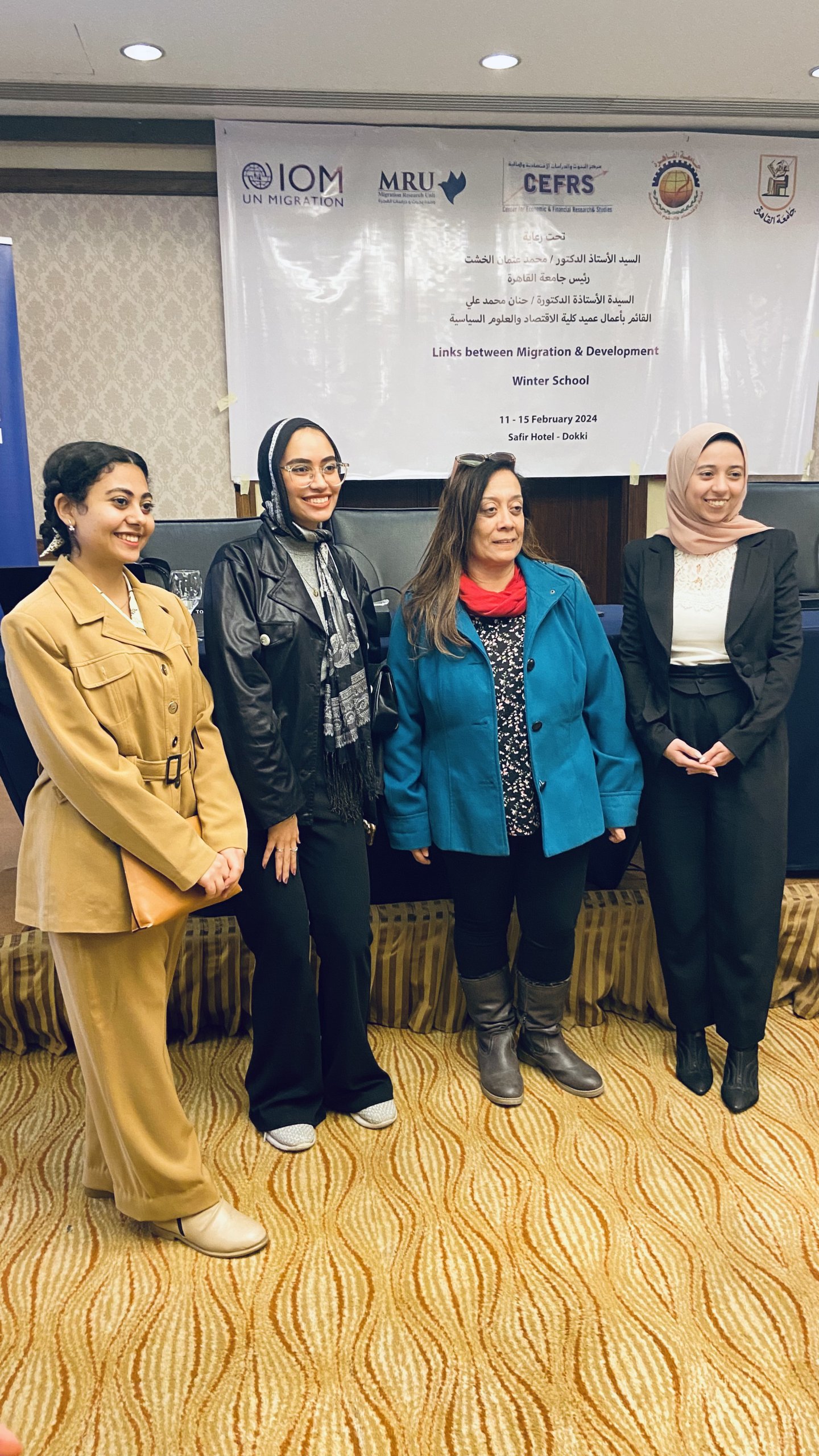The MRU at Cairo University hosted a significant Winter School from February 11th to 15th, 2024. This program, focusing on the critical links between migration and sustainable development, provided an immersive experience for participating students. Under the guidance of Professor Adla Ragab, the MRU coordinated with the IOM and various experts to develop a curriculum that addressed the complexities of migration and sustainable development comprehensively. The unit ensured that the program included a mix of theoretical knowledge, practical workshops, and interactive sessions, providing a well-rounded educational experience for the students.
The MRU’s efforts in organising high-caliber speakers and facilitators contributed significantly to the success of the Winter School. By integrating insights from leading academics, government officials, and international experts, the MRU helped bridge the gap between academic learning and real-world application, enhancing the overall impact of the training carried out in accordance with the following programs
Winter School Training Program 2024
- The opening ceremony featuring prominent speakers:
- Professor Hanan Mohamed Ali, Acting Dean of the Faculty of Economics and Political Science.
- Professor Adla Ragab, Professor of Economics and Coordinator of the MRU.
- Ambassador Wael Badawy, Deputy Minister of Foreign Affairs for Migration Affairs
- Carlos Oliver, director of the IOM Mission in Egypt
These keynote speakers highlighted the objectives of the Winter School, emphasising the importance of understanding migration dynamics in the context of sustainable development. This session was crucial in providing students with an overview of the program and setting expectations for the upcoming days.
- On the second day, the program delved into the governance of migration and its economic implications. Sessions included:
- Dr. Peter Schultz, Professor Governance of Migration and Diversity at Erasmus University Rotterdam, discussed sustainable development issues and international methodologies supporting migration governance.
- Dr. Heba Nassar, Professor of Economics at Cairo University, led a session on the economics of migration, exploring how migration impacts economic growth and development.
- The third day focused on the intersection of migration and various Sustainable Development Goals (SDGs).
- Dr. Alaa El-Khawaga, Professor of Economics at Cairo University, discussed the role of migration in achieving SDGs related to education, health, decent work, and climate change. This comprehensive session emphasised the multi-faceted impact of migration on different aspects of development.
- Dr. Ayman Zahry, a migration and population studies expert, provided insights into the metrics and indicators used to measure migration trends and their impacts, enhancing students’ abilities to analyse migration data critically.
- The fourth day’s sessions addressed societal perspectives on migration and the integration of migrants:
- Dr. Amani Massoud, Professor of Political Science and Head of Political Science Department at the, discussed societal views on migration and strategies for integrating migrants into the community, and focused on the rights of marginalised migrant groups and empowering them within host communities.
- The final day concentrated on creating opportunities for youth and effective project management:
- Ms. Marwa Mostafa from the IOM led sessions on creating job opportunities for youth through small and medium enterprises (SMEs) and effective communication skills with diverse groups.
- Ms. Mostafa also conducted a workshop on establishing impactful youth initiatives, equipping students with practical skills to drive change in their communities.
- This important effort and training has resulted in students gaining insights into national and international migration policies, and understanding their roles in promoting sustainable development.
The program encouraged active participation, allowing students to engage with experts and peers, and fostered a collaborative learning environment. Through interactive sessions and workshops, students have developed critical skills in policy analysis, project management and effective communication, so that they can become future leaders in migration policy and development areas.
